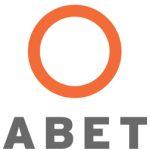
The Middle States Commission on Higher Education (MSCHE)
Rensselaer Polytechnic Institute (RPI) is an accredited institution and a member of the Middle States Commission on Higher Education (MSCHE or the Commission) www.msche.org. RPI’s accreditation status document may be found in MSCHE’s Statement of Accreditation Status (SAS). The Commission’s most recent action on the institution’s accreditation status was on June 26, 2025, to reaffirm accreditation. The next evaluation will be in 2032-2033. MSCHE is recognized by the U.S. Secretary of Education to conduct accreditation and pre-accreditation (candidate status) activities for institutions of higher education including distance, correspondence education, and direct assessment programs offered at those institutions. The Commission’s geographic area of accrediting activities is throughout the United States.
Resources:
- MSCHE Complaint Policy & Complaint Form
- RPI Report a Concern Form
Program Accreditation

A non-profit organization that accredits college and university programs in engineering, computing, and applied sciences. ABET accreditation is a voluntary process that ensures the engineering and technology programs meet established standards for quality education. This means that graduates of ABET-accredited programs have the knowledge, skills, and abilities needed to succeed in their chosen professions. RPI Contact: Dr. Kurt Anderson, Professor and Associate Dean for Undergraduate Studies, School of Engineering. Refer to the link for further details.

The Association to Advance Collegiate Schools of Business (AACSB)
A global nonprofit organization that accredits business schools worldwide. AACSB accreditation is considered the highest standard of achievement for business schools. RPI Contact: Dr. Chris McDermott, Professor and Associate Dean for Research, Lally School of Management.

The National Architectural Accrediting Board (NAAB)
A non-profit organization that accredits professional architecture programs in the United States and Canada. NAAB accreditation ensures that architecture programs meet high standards for quality education. This means that graduates of NAAB-accredited programs have the knowledge, skills, and abilities needed to succeed as professional architects. RPI Contact: Dr. Rhett Russo, Associate Professor, School of Architecture.
State Reciprocity

The National Council for State Authorization Reciprocity Agreements (NC-SARA)
Is a voluntary agreement among member states that simplifies the process for out-of-state institutions to offer distance education courses and programs within their borders. It helps streamline the authorization, administration, and student access to distance education programs. RPI Contact: Dr. Mohua Bose, Associate Vice Provost for Institutional Effectiveness & Planning, Office of Institutional Research and Assessment.
Program Approval

American Chemical Society (ACS)
The ACS is a congressionally chartered independent membership organization which represents professionals at all degree levels and in all fields of chemistry and sciences that involve chemistry.